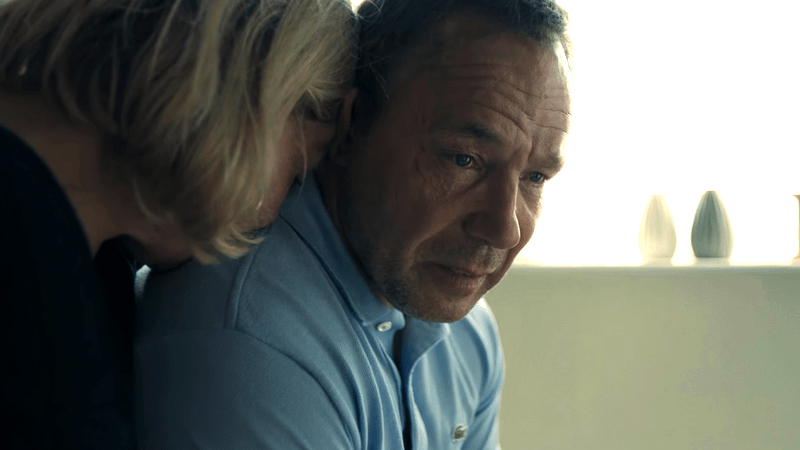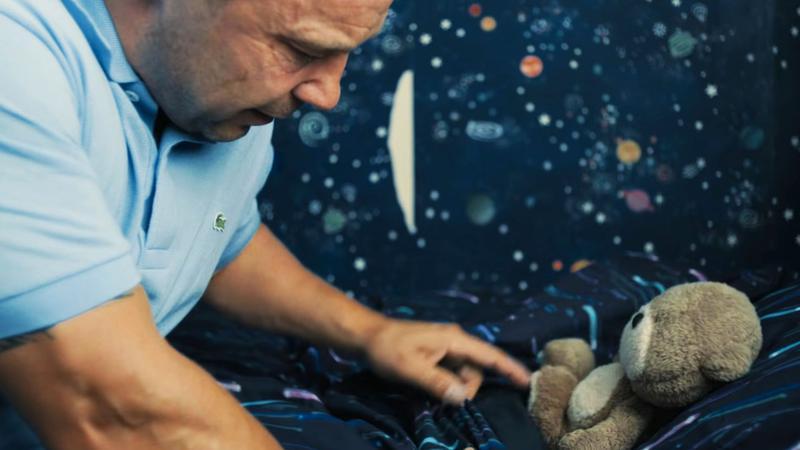
One of the creators and stars behind Netflix's Adolescence has revealed the true meaning behind the series' ending.
Adolescence started with a bang as 13-year-old Jamie Miller was accused of murdering a teenage schoolgirl. While most were initially sure of his innocence, the series made his guilt clear before taking a deep dive into why Jamie killed Katie, exploring themes of toxic masculinity and gender divide.
What Did Adolescence's Ending Mean? Stephen Graham Explains

After a family outing to remove graffiti from their van, the Miller family received a phone call from their incarcerated son, Jamie, who, 13 months after committing his crime, had finally decided to plead guilty in court.
Breaking down into tears, Jamie's parents, Eddie and Manda, talked long about their parenting, contemplating blaming themselves for what their son became.
They discussed how, throughout Jamie's childhood, he would hide away in his room late into the night where they thought he was "safe." However, it became clear it was within there he was exposed to dangerous ideas of toxic masculinity and sexism that took him down a dark path.
Manda noted how Jamie has a "terrible temper," just like his father, suggesting they should have "seen it and stopped it" before it got out of hand.
While Eddie praised Manda as a "good mum," he suggested he may have taken "his eye off the ball a little bit." Despite agreeing that both were strong parents, the mother said, "I think it'd be good if we accepted [we should have done more]."
Ultimately, the series ends with Eddie going into Jamie's room, lying on the bed, screaming into the pillow, and tucking into a teddy as he broke down into tears and uttered, "I'm sorry, son. I should have done more."
Read a full breakdown of Adolescence, including the series finale.
Most Adolescence viewers have taken one thing away from the Netflix series' ending, being that Eddie will also blame himself for Jamie's crime.

Speaking with GQ, series creator and Eddie actor Stephen Graham clarified that was the intended meaning of the ending as "Eddie will always carry that cross" and the Miller family may never have "pure, total happiness again:"
“I think any parent in that situation would always sort of slightly blame themselves .I think Eddie will always carry that cross,” he continues. “I don't know if there will ever be pure, total happiness again between that family. I'd like to hope there could be, maybe one day. But they're gonna carry this for the rest of their lives.”
The Netflix sensation makes clear that even though there were many reasons why Jamie ultimately killed Katie, Eddie will always blame his parenting and have a feeling that he should have done more.
Similarly speaking with GQ, co-creator Jack Thorne was asked why they decided to end Adolescence with a sense of lingering guilt.
In response, he noted the decision to end on Eddie in Jamie's room was all about Graham's performance as what he can do "with one flicker of an eyelash tells about 50 pages of dialogue:"
Ending on Eddie in Jamie's space was very deliberate, and was about him, and again it's about Stephen the actor. There's a moment in episode one when Jamie is strip-searched, and in the script — as in the filming — it was like, 'And we turn and we watch Eddie's face.' What Stephen can do with one flicker of an eyelash tells about 50 pages of dialogue.
He continued to discuss the scene, pointing out how Jamie's room remains "untouched despite all they've been through in the last 13 months:"
For me, ending with him in Jamie's space, and seeing him take in Jamie's space, and putting him in relation to a childhood room that remains untouched despite all they've been through in the last 13 months, it's all about giving him the opportunity to tell the story. Alfred Hitchcock's got this phrase, 'dialogue is just the words actors say while their faces tell the story,' and I really, really believe that. And in that moment it was all just kind of like, 'And now Stephen, you take us home.' And that's what he did. Because he's remarkable.












